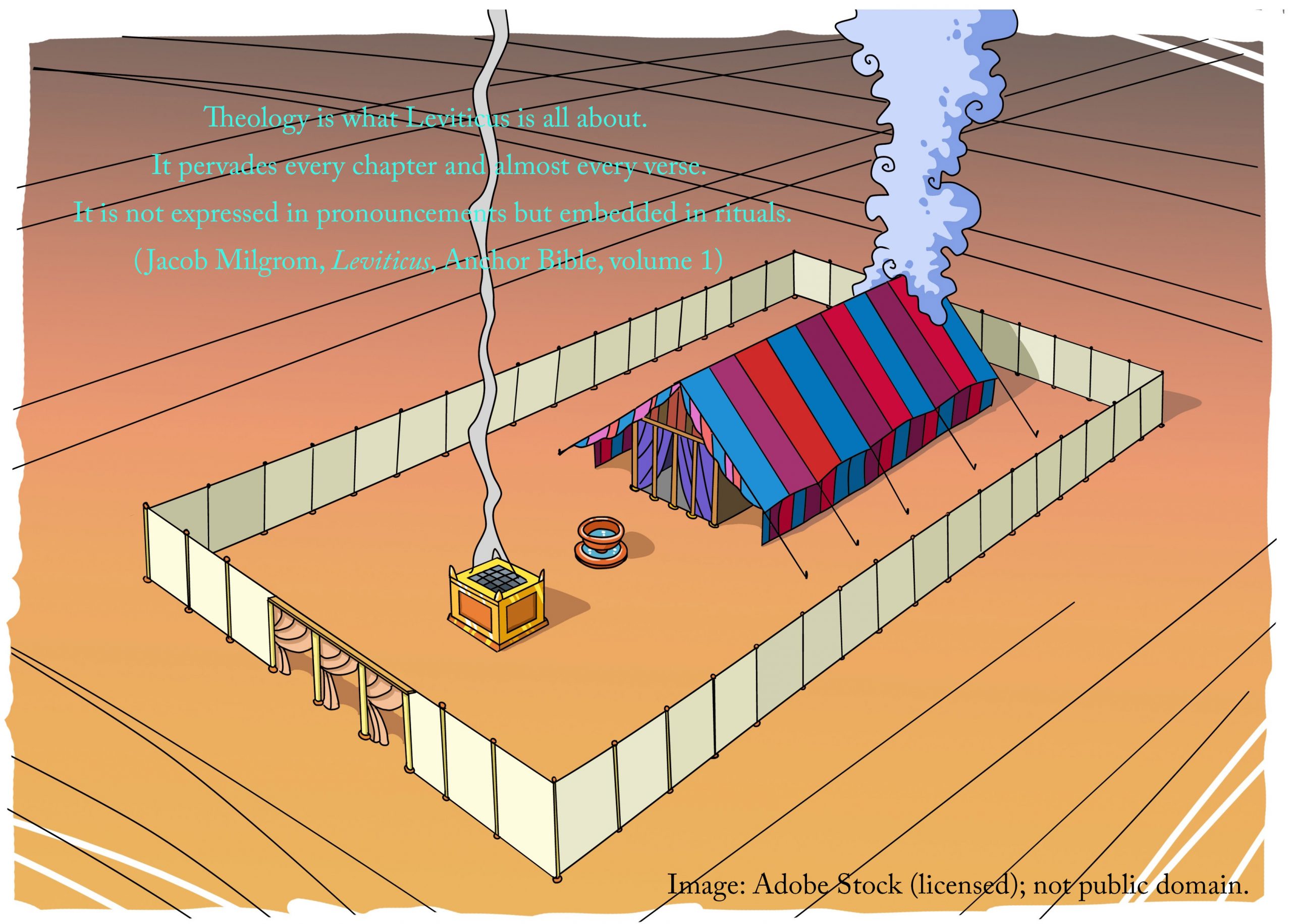Starting Leviticus
I mentioned in my post about completing the study of Romans that our next book was Leviticus. This was by choice of the group, but it is surely driven somewhat by the number of references I have made to Leviticus.
While I experienced Leviticus as a child, going to a Christian school where we read—really read—the entire Bible, and memorized a great deal, it never really caught my attention.
Two factors combined to catch my attention:
- I changed my view of biblical inspiration
- I studied through Leviticus using the three volume commentary on it in the Anchor Bible series by Jacob Milgrom.
Studying with Milgrom
Here’s a key Milgrom quote, and this from a man who does not tend to speak in one-liners!
Theology is what Leviticus is all about. It pervades every chapter and almost every verse. It is not expressed in pronouncements but embedded in rituals.
Jacob Milgrom, Leviticus, Vol. 1, Anchor Bible. (New York: Doubleday, 1991), 42. (Link is to my review.)
One of the key lessons I learned in that book is that ritual matters. The way we worship both reflects and creates theology. When we go to church and listen to one person from the front do all the talking, that has an impact on how we see the Christian life, learning, discipleship.
I recall that I was once asked to speak at a church where, unknown to me, people felt they could delegate that task of prayer to the prayer warriors. The pastor who invited me knew I’d say something different.
I would like to say something similar about study to the church as a whole: You can’t leave your study to pastors or scholars. You need to get involved.
Bottom line here is that our ritual matters in many ways.
I asked a question in a previous post:
If God showed up on Sunday morning, would God enjoy what was going on?
Henry’s Threads, “A Morbid and Boring Christianity“
I think it’s a good question. In terms of Leviticus, would it be a “pleasing odor?”

Inspiration in the Production of Scripture
The other element is my change was my view of inspiration. There is a single element that is critical. I came to regard the process of inspiration and transmission of scripture as a critical element in our understanding. I see scripture as a compendium of the experience of people with God. It is important to recognize both the divine and human element.
Out of that divine-human story, I see God working with people through scripture. In Leviticus, we see God as educator. Yes, we see the human report of what happened. I’m not trying here to debate details on how human and how divine scripture is; in fact, I think that’s the wrong question. What we’re looking for is the process behind what we have. We want to see God in action.
Is that perhaps arrogant? I don’t believe so. I believe God has left God’s imprint all over creation, and very much in the way in which God’s chosen people were developed and prepared. Looking at this process is even more critical than connecting dots between specific scriptures.
Things I Won’t Be Doing
In focusing on the way ritual expresses theology and develops worshipers, there are two things I will not be emphasizing.
First, I will not be looking for the minor ties between specific scripture prophecies and New Testament events. While I accept predictive prophecy in principle, in practice I find that the detailed interpretation of a prediction/fulfillment is rarely necessary to learn the lessons expressed.
Second, I will not be doing a detailed symbolic connection between elements of the ritual. Those sorts of things (and the resulting debates) are available elsewhere.
I will be focusing on the expression of theology through ritual and the relationship of that ritual to forming God’s people. I hope to learn something about discipleship and instruction/nurture through this book.
(Featured image credit: Adobe Stock #158382143. Licensed, not public domain.)





Milgrom is truly an interpretive blessing. I balked at his 3 volume work, but dabbled in his one volume approach. (I recall you spent a year in the three.) In the opening pages he showed the connection between what Israel had on their dinner tables and the priests had on their altars. That every meal ritually was a participation in divine blessing. I’m looking forward to your observations.
I think it may have been closer to two years, though I can’t recall precisely. I may have recorded it somewhere, like in my review. It is a daunting process, but also very valuable.